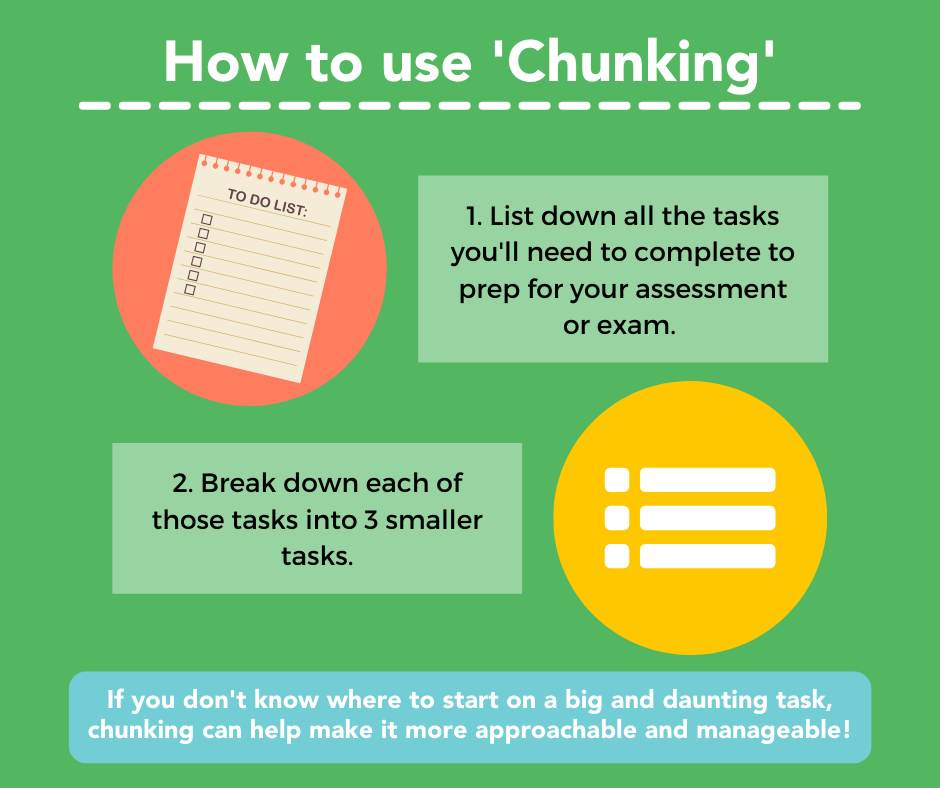Let’s face it… we’ve all done it. Procrastination is an insidious beast towards professionals and school students alike. When it comes time for your child to sit their HSC, however, it’s important to deal with this habit of procrastination.
There’s actually pretty good scientific backing to explain why we procrastinate. Sometimes we have an unrealised fear of failing at a particular task, or we don’t have clear goals so we are demotivated. Other times, we are just tired and lacking energy.
Good news! We have five ways that you can help your child excel in their study time and make the most out of Year 12.
Keep reading to learn the best ways to deal with your child’s procrastination!
Tip #1: Use the Pomodoro Method
Tip #2: Implement a Rewards System
Tip #3: Restrict Internet Access
Tip #4: Create Smart Checklists
Tip #5: Encourage Group Study
Tip #1: Use the Pomodoro method
Our first tip is a tried and true study hack. The Pomodoro Method was invented by Francesco Cirillo back in the 80s as a way to break study into small intervals (Pomodoro means tomato in Italian, named after the shape of Cirillo’s timer!).
This technique works by breaking down immediate tasks and then splitting them into 25 minute sections, with 5 minute breaks in between.
If your child has a large essay to complete, they might do one paragraph per 25 minute round. This method can be used to complete something short in a couple of hours, or as an all day routine with larger breaks for meals and exercise (plus the occasional phone scrolling).
One important element of the Pomodoro Method is that your child’s phone and any other distracting equipment should be moved away. They may still procrastinate, but it will be by doing sweet nothing.
You can find a really good tutorial of this method here!
How can you help?
As a parent, it can be challenging to suggest good study habits to your children without seeming overbearing. You could suggest that the Pomodoro Method is something you’ve heard of that is useful to deal with procrastination, or even something you’ve used yourself!
Tip #2: Implement a rewards system
Remember the chore charts you likely made your child when they were younger? Perhaps you incentivised them with a new doll, some lollies, or a trip out. This technique works in quite the same way, albeit more sophisticated.
First, talk to your child about what it is that they need to achieve in a designated time frame. Make this time tangible — perhaps it’s a week, maybe it’s just a couple of days.
You may both have different expectations about what is achievable, so it is important to compromise and see that your child doesn’t feel too overwhelmed.
Once a workload has been set, the fun begins! Ask your child to choose an activity that they really love doing. For small tasks, like completing two hours of study, it might be watching their favourite Netflix show. Bigger tasks or timeframes may involve a trip to the city, going to the movies, or buying some clothing they love.
Working with your child to ‘earn fun’ is a great way to avoid procrastination and see that all important work is completed!
How can you help?
Many well-intentioned parents set grade goals for their children and reward them based on these. You may know that your child is more than capable of getting higher marks than they currently are. They may be stressed, very busy or simply being a little lazy.
However, it is far more beneficial to reward them for work ethic. The reason for this is two-fold.
First, if your child is working hard, they are likely getting the best marks they can (and you should be proud of that!).
Additionally, your child is more likely to feel long-term benefits for their work if you encourage their effort. Research suggests that short-term rewards for marks can ruin the internal incentive that students feel and may decrease ownership over work.
Because of all of this, it seems that rewarding work ethic is the way to go!
Tip #3: Restrict internet access (temporarily)
One of the biggest procrastination temptations is aimless scrolling.
It’s something we all do. How often have you ended up on a funny video during work hours? If your child enjoys watching Youtube videos or TikToks, online shopping, or really anything else on the web, they may end up on distracting websites without even realising it.
To help them deal with procrastination, your child can block websites for certain periods of time using SelfControl (Mac) or Cold Turkey (PC). They can also put their phone on Aeroplane mode to avoid distractions. Changing physical parameters around procrastination can be one of the best steps to ensure work gets done in an efficient manner!
This technique is also really useful when used in conjunction with the Pomodoro method, because there are very limited ways that your child can stray from work within that 25 minute period.
How can you help?
Like all of these tips, it’s important that you encourage your child without telling them exactly how to manage their study time. Of course, each student is different. Some may need a lot of guidance or some strict rules to get themselves into study mode. Others will be pretty good at self-initiating.
Regardless, chatting to your child and to a couple of key teachers to find what may work best can be a great way of being helpful to your child’s HSC progression, without being overbearing. They are always going to do best if they feel some autonomy over their work.
Tip #4: Create Smart Checklists
Welcome to my favourite thing in this academic world — to-do lists!
For some students, this will be the golden point to staying on track and getting everything done.
The first step is simple — students create a list on their phone or laptop. Some children may also enjoy using online organisation systems like Asana or Trello.
By using one of these sites, students might even divide up their work by subject, colour-coding and moving it into a different box once completed. These can be kept very simple, or used to their full extent with sub-folders for each area of work. Some students like to create a handwritten list in a diary!
The second step to a smart checklist is ordering work efficiently. Getting small but fiddling tasks out of the way first can help students focus on bigger projects. Dividing work up into bite-sized portions and creating a time frame for each task will help stay on track. By doing this, students will develop more concrete goals to work towards and achieve.
The final, and by far most satisfying part, is to tick off completed tasks! Making concrete plans that we can cross off can eliminate work anxiety and give us big feelings of satisfaction.
Check out our technique known as ‘chunking’ for dividing up tasks to make work more achievable!
How can you help?
One practical thing you can do is purchase your child a good diary. I’ve bought the same linen-bound journal from Bespoke Letterpress for several years, and it always makes me feel satisfied to be making lists in a book I love.
You can look around for similar boutiques, or perhaps at places like Typo and Officeworks.
Tip #5: Encourage group study
Suggest that your child invites a couple of friends around for a group study session.
This may sound counter-productive to curbing procrastination, but studying in a group can have key motivation benefits for students. By working with productive students, they can clarify things they find confusing, match the work pace of their friends, and ultimately get stuff done.
How can you help?
Let your child know that you’re open to the idea of them studying with others! Offer to buy some snacks and make your home a welcoming environment for their friends. They’ll likely get lots of work done whilst having a great time.
And that’s it!
At the end of the day, procrastination is something we all deal with. Hopefully these tips can help your child achieve their best in HSC by limiting wasted time and essentially stop them from procrastinating study.
You know your child, so you know what techniques are likely to help them best! Keep pushing through and trying new things with them.
Learn more about dealing with HSC procrastination in our article here!
Lucinda Garbutt-Young hopes to one day be writing for a big-shot newspaper… or maybe just for a friendly magazine in the arts sector. Right now, she is enjoying studying a Bachelor of Public Communication (Public Relations and Journalism) at UTS while she writes on the side. She also loves making coffees for people in her job as a barista, and loves nothing more than a sun shower.





